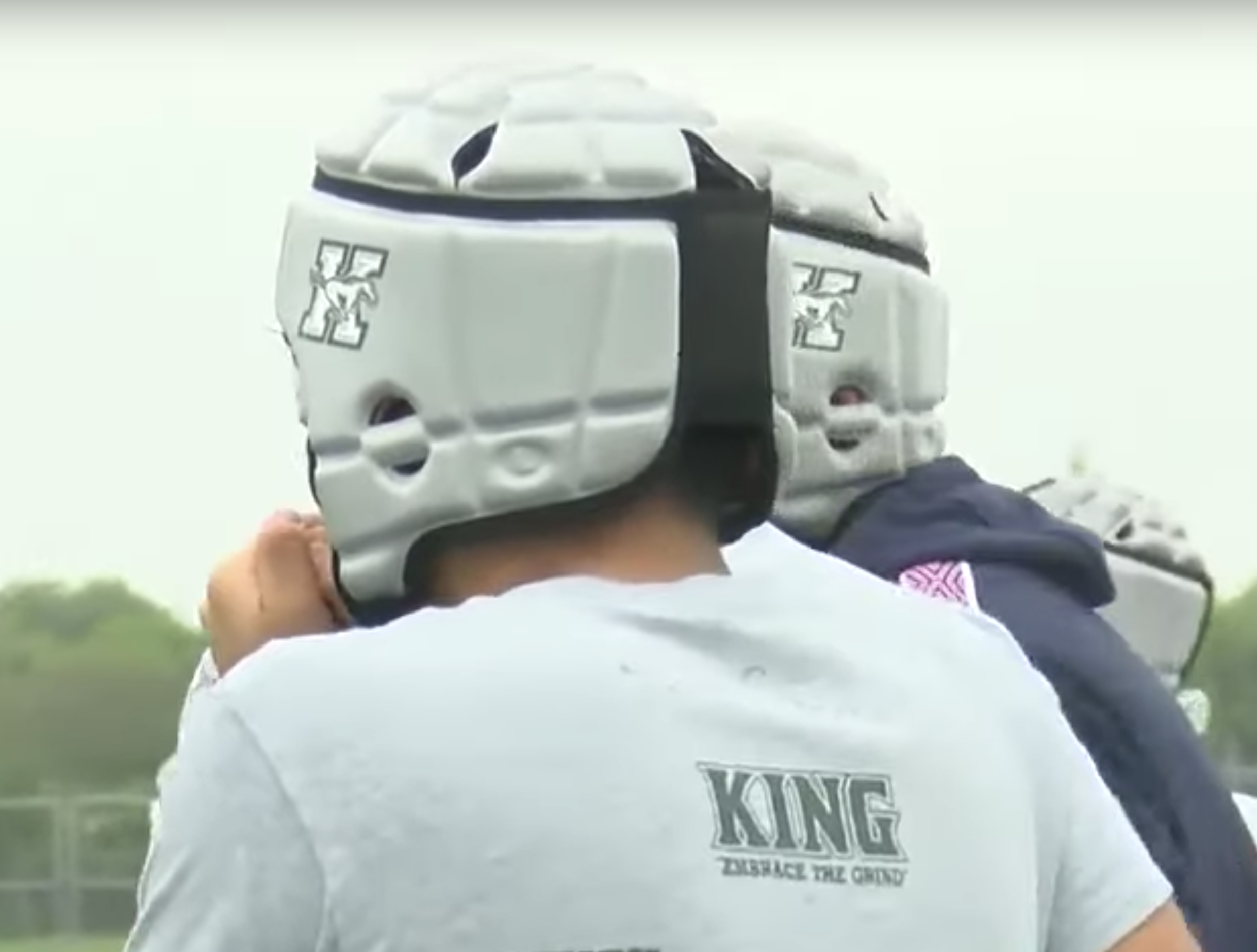DALLAS MORNING NEWS | JULY 30, 2017
TEXAS, A&M, HOUSTON AMONG SCHOOLS TAKING STEPS TO IMPROVE PLAYER SAFETY WITH NEW PRACTICE HELMETS

By Ben Baby
A nose for the ball is something coded into college football players after years of playing the sport, regardless of the situation.
Whether it’s in a game, during 7-on-7 in the summer or in walkthroughs, instinct is going to kick in, according to Houston coach Major Applewhite.
“They’re going to go for the ball, like dogs to meat,” Applewhite said
That competition, even at half-speed, might cause heads to collide and puts players at risk for concussions. Houston, along with in-state schools including Texas, Texas A&M and TCU, have all purchased soft-shell headgear to protect players.
Houston and Texas could be among the teams wearing the equipment this preseason. This year, the NCAA eliminated two-a-day practices but allowed teams to use a ball during a walkthrough.
Currently, the NCAA does not allow for protective equipment to be worn at walkthroughs. Teams like Houston that want to wear the headgear to avoid concussions will need a waiver from the collegiate governing body.
“To give guys a football with no helmet is a bad idea,“ Applewhite said.
For Houston’s voluntary 7-on-7 drills, the first-year coach said the Cougars rush ordered 60 soft helmets that look like a combination of a skullcap and an old leather helmet. Another 55 helmets should arrive in time for fall practice.
Houston’s far from the only one to buy in to the idea of protective headgear.
Texas A&M bought 400 pieces of headgear this summer, according to information obtained through an open records request. Texas purchased 61 of the exact same helmets in May, per an invoice obtained through an open records request.
In May, Herman tweeted a photo of a helmet with the Longhorns’ logo along and said the “safety of our athletes is a priority” as he announced a partnership with Gamebreaker.
Gamebreaker is the California-based company doing business with all of the aforementioned universities along with TCU.
Gamebreaker CEO Mike Juels, a former high school football assistant coach, saw the growth of 7-on-7 and the head injuries that came with it. Juels saw an opportunity to fill a space in the marketplace while addressing a way to protect the future of a sport filled with head injuries.
Ever since Duke ordered Gamebreaker helmets before the 2016 season to become the first university to do business with the organization, other schools have followed suit, Juels said.
He said equipment managers, athletic directors and head coaches realize the importance of reducing head injuries and how that impacts the future of the sport.
“I think they’re taking all of the steps they can to keep player safety at the forefront and create a culture of safety,” Juels said.
Coppell junior Jonathan McGill, a four-star recruit according 247Sports’ composite ranking, has been wearing similar headgear all summer long. At select 7-on-7 tournaments, he’s given a soft-shell helmet upon arrival. McGill said after about five minutes, he got used to wearing the padding on his head while playing wide receiver or defensive back.
“It’s a good way to play 7-on-7, honestly, being more protective,” McGill said. “It’s keeping kids safer from head injuries. I know that’s a big topic going around and why people don’t want to play football.”
Thinking about what to wear when teams aren’t wearing full pads and uniforms is an evolution in the sport, Applewhite said. Ten years ago, Applewhite said, few teams were carrying around water bottles or putting urine charts inside bathroom stalls.
“Now everybody’s got their teams drinking water,” Applewhite said. “They’ve got their teams looking at hydration charts. As we learn more about this game, we have to adapt, evolve and protect our players.”
Read the original story on the Dallas Morning News website.
Also, check our selections of 7v7 helmets and flag football helmets today.




